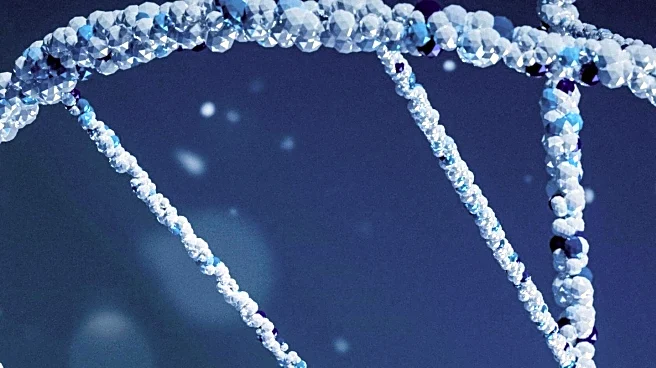What's Happening?
Sarepta Therapeutics has released new safety data for its gene therapy Elevidys, indicating no deaths among ambulatory patients with Duchenne muscular dystrophy treated with the drug. The data was presented at a virtual event hosted by the Center for Duchenne Muscular Dystrophy at UCLA. According to Jefferies analysts, over 1,000 patients have been treated, with zero deaths attributed to acute liver failure in ambulatory patients. However, acute liver injuries were documented in 23% of patients globally. The data highlights a positive benefit/risk profile for Elevidys in ambulatory patients, although concerns remain about potential deaths in this group. Liver toxicities were noted to be balanced in clinical and real-world settings, except for non-ambulatory patients in the U.S., where serious liver injuries were more common in real-world settings.
Why It's Important?
The release of safety data for Elevidys is significant for the medical community and patients with Duchenne muscular dystrophy, as it provides reassurance about the drug's safety profile in ambulatory patients. This information is crucial for healthcare providers and patients making treatment decisions. The data also impacts Sarepta Therapeutics' reputation and market position, as safety concerns can influence regulatory actions and investor confidence. The findings may affect the company's ability to continue marketing Elevidys and could lead to changes in treatment protocols or regulatory requirements.
What's Next?
Sarepta Therapeutics may face increased scrutiny from regulatory bodies, such as the FDA, regarding the safety of Elevidys, especially in non-ambulatory patients. The company might need to implement additional safety measures or conduct further studies to address concerns. Stakeholders, including healthcare providers and patient advocacy groups, may push for more transparency and data on the drug's safety. Sarepta's future actions could include revising treatment guidelines or enhancing monitoring protocols to ensure patient safety.










